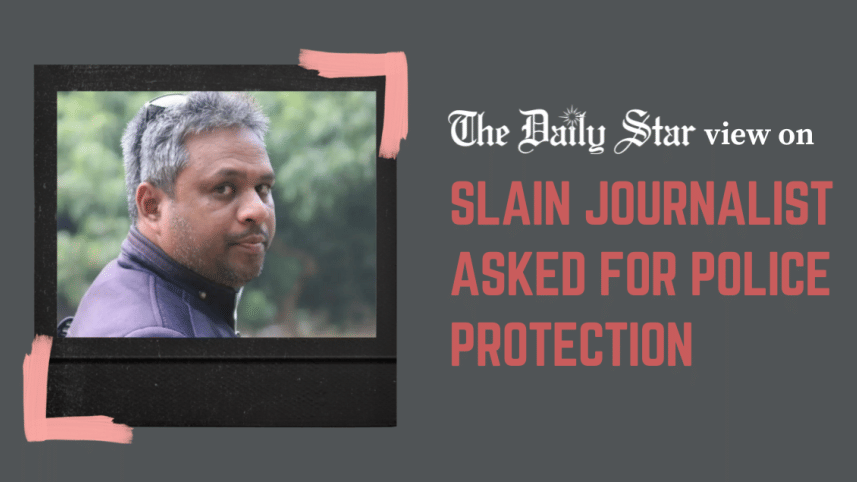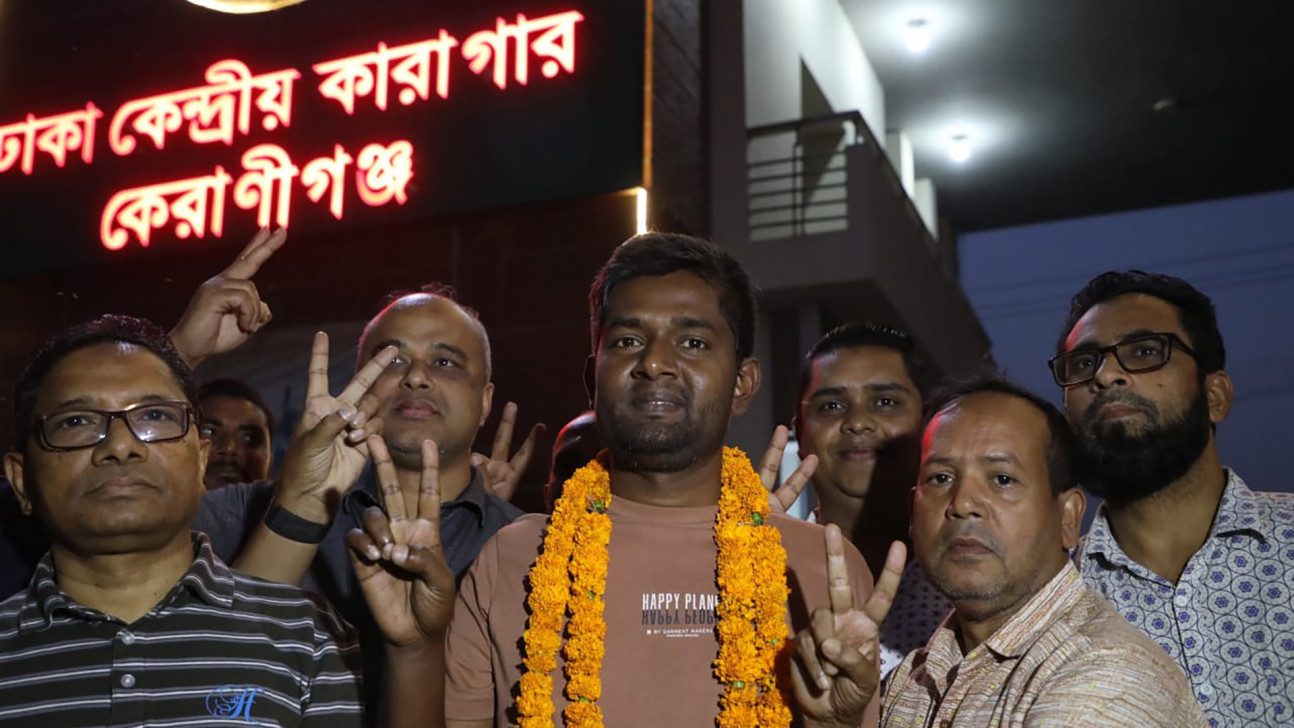Could Nadim’s life have been saved?

We are extremely disheartened to learn that journalist Golam Rabbani Nadim, who was brutally murdered in Jamalpur recently, could have, in fact, been alive today had the authorities responded to his pleas for security. Before he was attacked on June 14, the 42-year-old was harassed by not only Mahmudul Alam Babu, the UP chairman whose supporters allegedly killed him, but also the upazila Awami League president, Shahina Begum, and her supporters. According to a report by this daily, Nadim made a complaint two months ago to Bakshiganj Police Station in Jamalpur that he was getting death threats after reporting on Shahina's "misdeeds." But police neither recorded his complaint nor did anything to ensure his safety. Incidentally, a relative of Mahmudul's is a senior police officer.
As horrific as the tragedy is, it is harder to accept knowing that it could have been prevented. Who should we hold responsible for that? Is it the culprits and those behind them who orchestrated the attack, or is it the police that allowed it to happen? Given how crime and power intersect in our country, perhaps it is both. Both are beneficiaries of a deeply politicised administrative culture that allows abuse of power and criminal negligence to go unpunished. Journalists, whose job involves frequent interaction with those in power, are particularly vulnerable in this climate. From DSA cases to death threats to physical violence – most recently, for example, by Chhatra League leaders who beat up a journalist for sitting at a tea stall "without permission" – some form of intimidation is now an essential part of life for them, particularly district correspondents.
It is these unchecked, everyday instances of harassment and the pervasive lack of accountability that eventually lead to precious lives being lost. Nadim's murder thus serves as yet another reminder of how journalists are really faring beyond the rosy picture often drawn of their freedom by the authorities. This must change. We urge the government to take stern action against those responsible for the murder of Nadim and other slain journalists. As a nation, we must reverse the desensitised silence about the reality journalists continue to face.



 For all latest news, follow The Daily Star's Google News channel.
For all latest news, follow The Daily Star's Google News channel. 

Comments